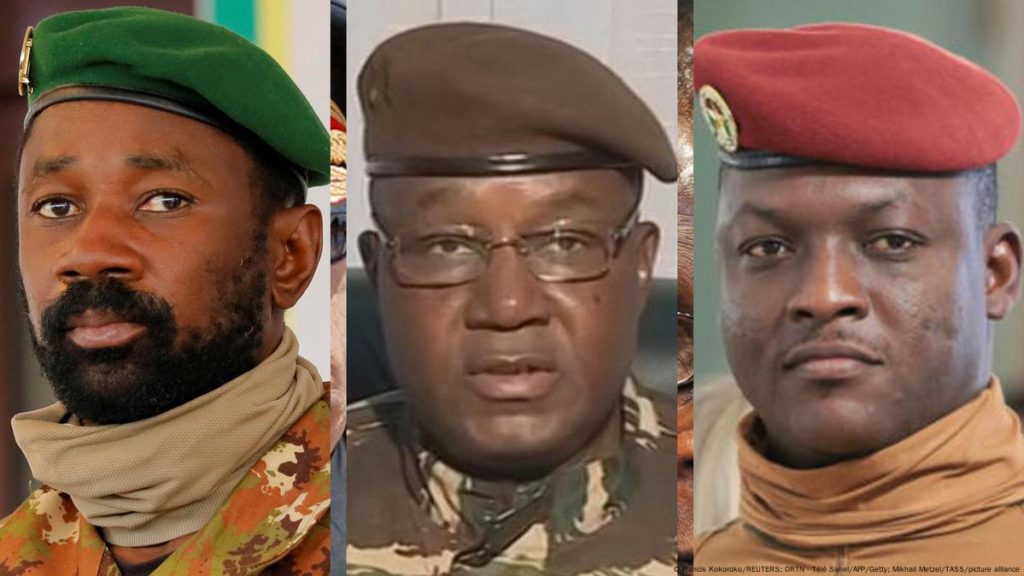Guinea’s military-led government has officially announced that a national referendum on a new constitution will take place on September 21, 2025, in what could be a pivotal step toward restoring democratic governance after nearly four years of junta rule. The announcement, delivered via a televised decree on Tuesday evening, marks the first concrete timeline provided by the transitional authorities since the country’s return to civilian rule was first promised in 2022.
The referendum, if held as planned, would serve as the foundation for an eventual general election. However, the move is being met with a blend of cautious optimism and skepticism, both domestically and abroad, amid concerns over the junta’s true intentions and the broader political climate in the West African nation.
A Coup, a Promise, and Repeated Delays
Guinea’s current leader, Colonel Mamady Doumbouya, came to power in September 2021 after overthrowing then-President Alpha Condé, who had controversially altered the constitution to seek a third term in office. Doumbouya, a former French legionnaire and head of Guinea’s special forces, was initially welcomed by many Guineans frustrated with political stagnation and alleged corruption under Condé’s administration.
Following the coup, Doumbouya pledged to lead a short transitional period that would culminate in elections and the reestablishment of constitutional order. In 2022, his government proposed a 24-month roadmap to civilian rule, starting in January 2023. This roadmap included drafting a new constitution, updating the electoral roll, and holding both the referendum and general elections.
However, deadlines came and went. By the end of 2024, the junta had missed its own self-imposed December 31 deadline to hand power back to a civilian government. The delay fueled domestic frustration and increased pressure from the Economic Community of West African States (ECOWAS), which has been urging a clear and credible transition timeline for Guinea and other coup-hit nations in the region.
A New Constitution—and a Path Back to Power?
In July 2024, the military government unveiled a draft constitution, one that could significantly shape Guinea’s political future. While details of the proposed changes have not been fully disclosed, early reports suggest that the draft may open the door for Colonel Doumbouya himself to run in future presidential elections—a possibility that many opposition voices see as a conflict of interest and a potential betrayal of the junta’s original transition promises.
Authorities have stated that the constitutional referendum will be a prerequisite for organizing national elections, and they argue that it is necessary to lay the groundwork for a more stable and representative system of governance. However, critics view the move with suspicion, suggesting it may be a calculated effort to legitimize the current military regime under the veneer of constitutional reform.
Political Opposition Under Pressure
Guinea’s political landscape has been significantly altered under junta rule. The country’s two former ruling parties—Alpha Condé’s Rally of the Guinean People (RPG) and the Democratic Party of Guinea (PDG)—have been suspended, removing two of the most influential political forces from the national stage.
Meanwhile, the Union of Democratic Forces of Guinea (UFDG), led by opposition figure Cellou Dalein Diallo, remains the only major political party still active—but it operates under heavy scrutiny. Government authorities have placed the party under surveillance, stifling its ability to organize, campaign, or mobilize effectively. These repressive measures have further complicated Guinea’s path to an open and inclusive democratic process.
The Stakes for Guinea—and the Region
The upcoming referendum is not only a litmus test for Guinea’s commitment to democratic norms but also a critical moment for West Africa, a region grappling with a resurgence of military coups and prolonged transitions. Guinea joins countries like Mali, Burkina Faso, and Niger in delaying timelines for a return to civilian rule, sparking widespread concern among regional and international actors.
Guinea is strategically important—not just politically but economically. The country is one of the world’s largest producers of bauxite, a key ingredient in aluminum production, and it also possesses vast reserves of iron ore. Stability in Guinea is crucial for global supply chains, especially as demand for raw materials grows. Prolonged political uncertainty could deter foreign investment and further strain its fragile economy.
The African Union, United Nations, and ECOWAS have all urged Guinea’s military leadership to ensure the referendum is conducted in a transparent, inclusive, and credible manner. Observers warn that manipulating the constitutional process to entrench military control could lead to further isolation, sanctions, or even civil unrest.
A Delicate Balancing Act
As the September 2025 referendum date approaches, several critical questions remain:
-
Will the referendum be free and fair?
-
Will opposition parties be allowed to participate meaningfully in the process?
-
And perhaps most importantly, will Colonel Doumbouya run for president after steering the country through the transitional phase?
Doumbouya has not publicly ruled out a run, and the legal structure of the proposed constitution may ultimately provide him with the opportunity to consolidate power through the ballot box rather than the barrel of a gun.
While some Guineans still view him as a stabilizing force who ended Condé’s unpopular third term bid, many others fear the transition is increasingly being used as a political maneuver to cement military control under the guise of democratic reform.
Final Thoughts: A Referendum with Far-Reaching Implications
The announcement of a constitutional referendum in September 2025 represents a pivotal moment in Guinea’s turbulent recent history. While it has the potential to steer the nation back to democratic rule, the success of that transition depends heavily on the credibility, transparency, and inclusivity of the process.
If the referendum is seen as a tool to entrench Doumbouya’s rule, it could trigger renewed unrest and undermine Guinea’s standing in the international community. If done right, however, it could lay the foundation for genuine political renewal in a country long plagued by instability and governance challenges.
For now, the countdown to September 21 begins—with hope, anxiety, and a watchful eye from both inside and outside the country.



















